
The O'Jays are an American R&B group from Canton, Ohio, formed in 1958 and originally consisting of Eddie Levert, Walter Lee Williams, William Powell, Bobby Massey, and Bill Isles. The O'Jays made their first chart appearance with the minor hit "Lonely Drifter" in 1963, but reached their greatest level of success once Gamble & Huff, a team of producers and songwriters, signed them to their Philadelphia International label in 1972. With Gamble & Huff, the O'Jays emerged at the forefront of Philadelphia soul with "Back Stabbers" (1972), and topped the US Billboard Hot 100 the following year with "Love Train". Several other US R&B hits followed, and the O'Jays were inducted into the Vocal Group Hall of Fame in 2004, The Rock and Roll Hall of Fame in 2005, and the Rhythm and Blues Music Hall of Fame in 2013.

Edward Joseph Mahoney, known professionally as Eddie Money, was an American singer and songwriter who, in the 1970s and 1980s, had eleven Top 40 songs, including "Baby Hold On", "Two Tickets to Paradise", "Think I'm in Love", "Shakin'", "Take Me Home Tonight", "I Wanna Go Back", "Walk on Water", and "The Love in Your Eyes". Critic Neil Genzlinger of The New York Times called him a working-class rocker and Kristin Hall of the Associated Press stated he had a husky voice. In 1987, he was nominated for a Grammy Award for Best Male Rock Vocal Performance for "Take Me Home Tonight".

Blood Brothers is a musical with book, lyrics, and music by Willy Russell. The story is a contemporary nature versus nurture plot, revolving around fraternal twins Mickey and Eddie, who were separated at birth, one subsequently being raised in a wealthy family, the other in a poor family. The different environments take the twins to opposite ends of the social spectrum, one becoming a councillor, and the other unemployed and in prison. They both fall in love with the same girl, causing a rift in their friendship and leading to the tragic death of both brothers. Russell says that his work was based on a one-act play that he read as a child "about two babies switched at birth ... it became the seed for Blood Brothers."

Hold Me is the fourth studio album by American singer Laura Branigan, released on July 15, 1985, by Atlantic Records. The album peaked at number 71 on the US Billboard 200, though it fared better internationally, reaching the top 10 in Sweden and Switzerland, and the top 15 in Norway.

Eddie Money is the debut studio album by American musician Eddie Money, released in December 1977 by Wolfgang Records, a subsidiary of major label Columbia. Money, a Brooklyn native, grew up interested in music. In 1968, he moved to Berkeley, California, where he became a staple of Bay Area nightclubs. Rock impresario Bill Graham subsequently discovered Money and signed him to his Wolfgang imprint.

Montgomery Gentry is an American country music duo founded by singers Eddie Montgomery and Troy Gentry, both Kentucky natives. They began performing together in the 1990s as part of two different bands with Montgomery's brother, John Michael Montgomery. Although Gentry won a talent contest in 1994, he reunited with Eddie Montgomery after Gentry was unable to find a solo record deal, and Montgomery Gentry was formed in 1999. The duo is known for its Southern rock influences, and has collaborated with Charlie Daniels, Toby Keith, Five for Fighting, and members of The Allman Brothers Band.

Playing for Keeps is the third studio album by American rock musician Eddie Money, released in July 1980, by Wolfgang Records and Columbia Records. It continues the expansion to include pop oriented tracks that began with the previous album.

"Say the Word" is Namie Amuro's 19th solo single under the Avex Trax label. It is her first single after the termination of her working relationship with longtime producer, Tetsuya Komuro. Debuting in the top three after an all-time low chart debut by its predecessor, "Think of Me / No More Tears" (2001), "Say the word" was her last single to sell over 100,000 copies until her 26th single, "All for You" (2004).

No Control is the fourth studio album by American rock musician Eddie Money. The album was released on June 11, 1982, by Wolfgang Records and Columbia Records. It was Platinum-certified in 1987, and contains the hits "Think I'm In Love" and "Shakin'."

Where's the Party? is the fifth studio album by American rock musician Eddie Money. The album was released in October 1983, by Wolfgang Records and Columbia Records.
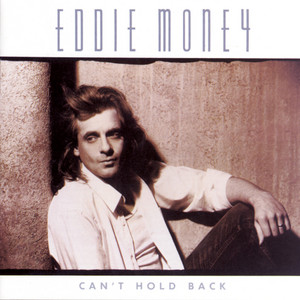
Can't Hold Back is Eddie Money's sixth album, released in 1986. It contains one of Money's biggest hits, "Take Me Home Tonight" which helped bring both himself and Ronnie Spector back to the spotlight. The album was certified platinum by the RIAA in August 1987.
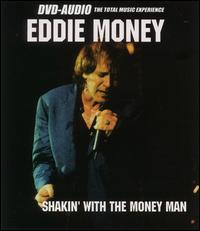
Shakin' with the Money Man is a 1997 album by Eddie Money.
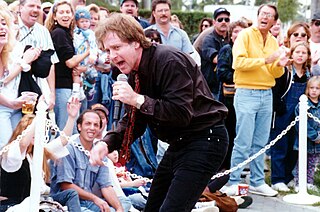
The discography of American rock musician Eddie Money consists of 11 studio albums, two live albums, four EPs, and 28 singles. He also released seven compilation albums.
Jesse Harms is an American musician and songwriter. He has worked with Sammy Hagar, David Lee Roth, Eddie Money, REO Speedwagon, Bad English, Guitar Shorty, Patty Smyth, and McAuley Schenker Group.
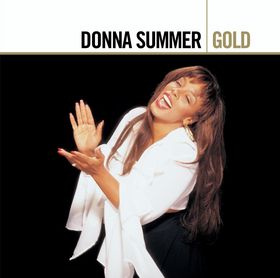
Gold is one of Donna Summer's greatest hits compilations. Donna Summer's entry in Universal Music's two-disc compilation series Gold is more or less a re-release of 1993's The Donna Summer Anthology, with the most noticeable differences being the cover art and that Gold includes four of her 1990s Club and R&B hits, which came out after the Anthology. Also, other 1980s European hits, such as "Dinner With Gershwin", and the 7 inch remix of "Love's About to Change My Heart", that were not included on the Anthology, are present here. However, the two tracks from 1981's shelved Geffen Records album I'm a Rainbow on disc two are left out, as are "Once Upon A Time" and "Rumour Has It", both from the 1977 album Once Upon a Time, the hit single "Cold Love" from 1980 album The Wanderer, and the album track "Friends Unknown" from Mistaken Identity. As of August 10, 2006, the album sold 30,000 in United States, according to Nielsen Soundscan.

"Baby Hold On" is a song recorded by American rock singer Eddie Money. It was written by Money and guitarist Jimmy Lyon and released in 1977 as the first single from Money's debut album Eddie Money. The song reached number 11 on the Billboard Hot 100, number 4 on the Canadian Hot 100, and number 19 on the Kent Music Report.

"Take Me Home Tonight" is a song by American rock singer Eddie Money. It was released in August 1986 as the lead single from his album Can't Hold Back. The song's chorus interpolates the Ronettes' 1963 hit "Be My Baby", with original vocalist Ronnie Spector providing uncredited vocals and reprising her role. Songwriting credit was given to Mike Leeson, Peter Vale, Ellie Greenwich, Phil Spector and Jeff Barry.
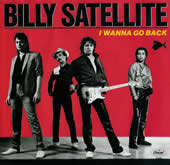
"I Wanna Go Back" is a 1984 song by American rock band Billy Satellite, written by band members Monty Byrom, Danny Chauncey, and Ira Walker, that achieved major popularity when recorded by Eddie Money in 1986. Another version was recorded by former Santana/Journey keyboardist/singer Gregg Rolie for his self-titled 1985 debut solo album.

Wanna Go Back is the eleventh and final studio album by American singer Eddie Money, released in 2007. On it, Money sings cover versions of popular songs from the 1960s. His daughter, Jesse Money, performed on three tracks from the album. The title comes from Money's 1986 hit "I Wanna Go Back".
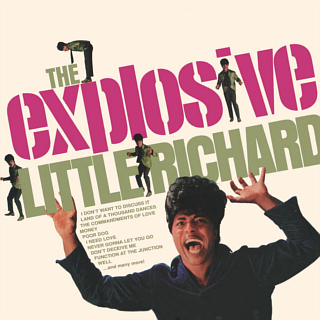
The Explosive Little Richard is the first album by Little Richard for Okeh Records, produced by his long-time friend Larry Williams and Johnny "Guitar" Watson. The songs reflect the then-popular soul and Motown musical styles; no tracks were written by Richard.



















